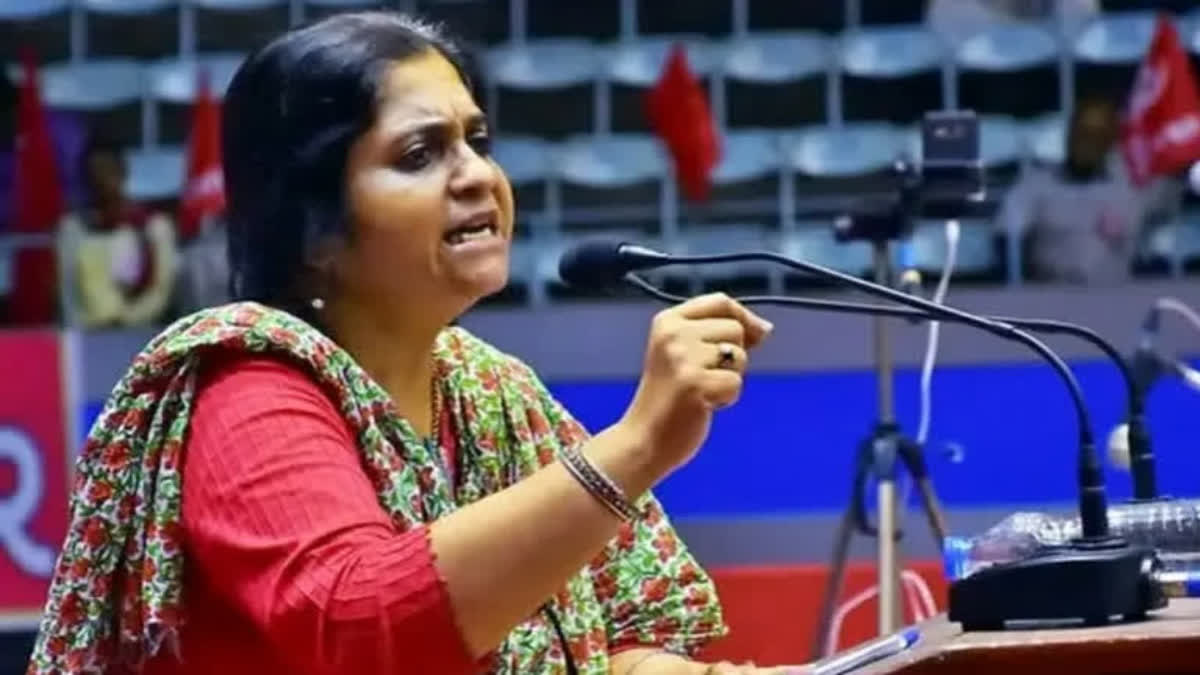New Delhi: The Supreme Court on Wednesday quashed Gujarat High Court order, which directed activist Teesta Setalvad to immediately surrender in a forgery case linked to the 2002 Gujarat riots.
The apex court also minced no words in criticising the order. “To say the least the findings are totally perverse and judicial propriety would not permit us to dwell into....”, it observed. A three-judge bench comprising justices B R Gavai, A. S. Bopanna, and Dipankar Dutta said, “even after she (Setalvad) was released on interim bail by this court, she has not been called for investigation even on a single occasion……”. In September last year, the apex court granted interim bail to Setalvad.
Justice Gavai said if the authorities' contentions were to be accepted, then the Definition of Evidence Act would be rendered moot. The bench told Raju, “Definition of Evidence Act would have to be thrown in the dustbin if your contention has to be accepted. We're only putting you on guard that if you delve more into it, we will have to make observations…..”. The bench said, “Initially, we were feeling that there was a case under [Section] 194. Now we think the case under Section 194 is suspect…..”.
Section 194 deals with giving or fabricating false evidence with intent to procure a conviction of capital offence. Anyone giving or fabricating false evidence, intending thereby to cause, or knowing it to be likely that he will thereby cause, any person to be convicted of an offence which is capital shall be punished with imprisonment for life, or with rigorous imprisonment for a term which may extend to ten years, and shall also be liable to fine.
The Supreme Court also criticised the July 1 judgment of a single judge bench of the Gujarat High Court and said it is full of 'contradictions.' On the high court order, the apex court said the judge has interestingly observed that the petitioner after filing of the FIR and the chargesheet has neither challenged the same in a proceeding under section 482 or Article 226, or before the high court or under Article 32 before this court.
The bench said the considerations, which are required to be taken into consideration at the stage of grant of bail are prima facie: the possibility of accused tampering with the witnesses and fleeing away from justice. “If the observations recorded by the learned judge are accepted then no application of bail at the pre-trial stage can be entertained unless the accused files an application for quashing the proceedings under section 482 Cr.P.C, Article 226….to say the least the findings are totally perverse”, said the bench.
The bench said having observed this on one end and on the other end the judge goes on to discuss the statements of some witnesses and observes that a prima facie case under section 194 is made out, “the findings are totally contrary to say the least”.
Referring to an observation made in the high court judgment, the top court said, “judicial propriety would not permit us to dwell into those issues…..”. The bench said the passport of the appellant already surrendered will be in custody of the sessions court and when prosecution raised its apprehension that she may influence the witnesses, it said, "The appellant shall not make any attempt to influence witnesses and shall stay away from them".
The apex court also permitted Gujarat Police liberty to directly move before it, if an attempt is made to influence witnesses in the case. The bench said, “most of the evidence in the case is documentary evidence, which is in possession of investigating agency….chargesheet already filed…..we do not find her custodial interrogation will be necessary….we allow the appeal and the impugned order ( Gujarat High Court order) is quashed and set aside….”and added that there is hardly any reason for fear that the documentary evidence would be tampered.
The top court said the bail granted to her by it last year is directed to be continued. At the fag end of the hearing, additional solicitor general S V Raju, representing the Gujarat government, submitted that she should not enter the state except for the purpose of trial, the bench quipped, “Are you serious?”
The bench clarified that the observations made by it and the high court would not come in the way of the trial court while it conducts trial in the case. On July 5, the Supreme Court extended the interim bail granted to Setalvad till the next hearing on July 19. Earlier, on July 1, the apex court had protected her from arrest and put the high court order on hold.
The top court was hearing Setalvad's petition against the Gujarat High Court order, which asked her to surrender in a case of alleged fabrication of evidence to frame innocents in 2002 post-Godhra riots cases. The high court denied her plea for regular bail.



